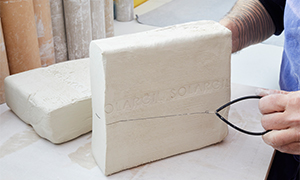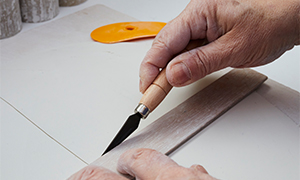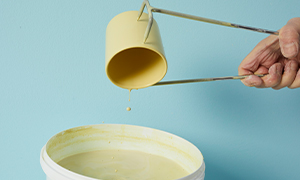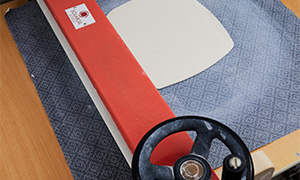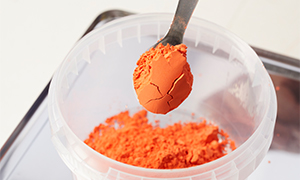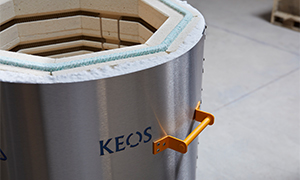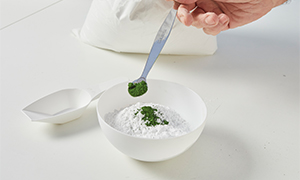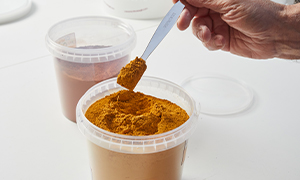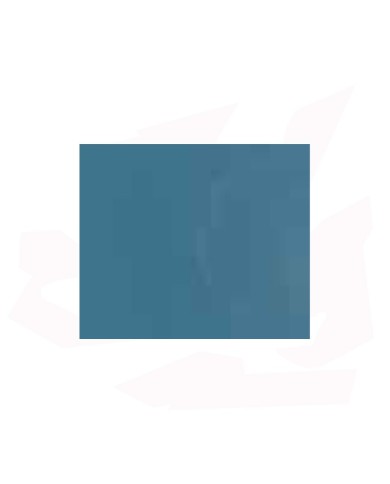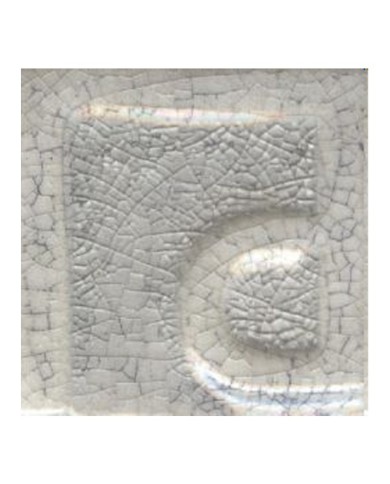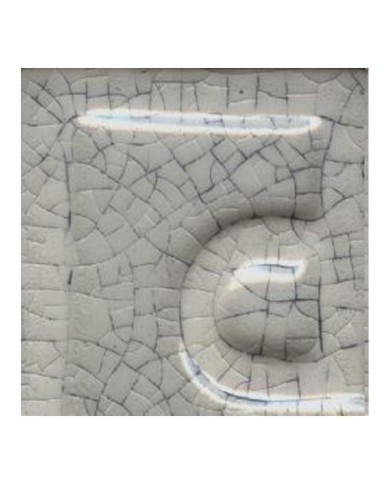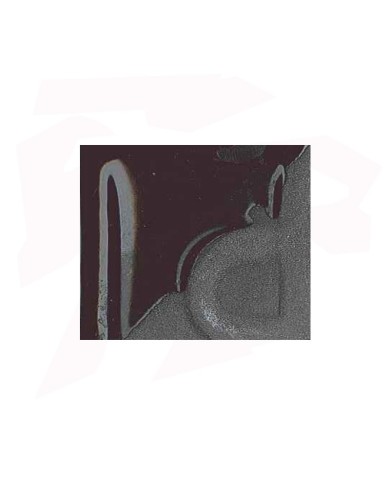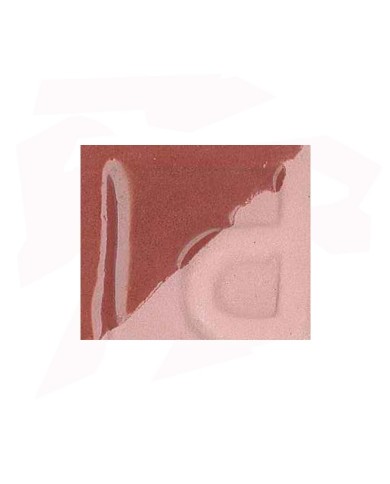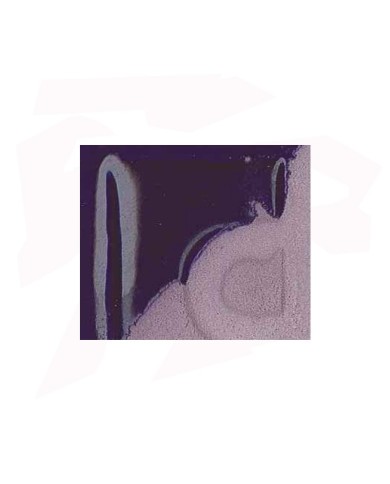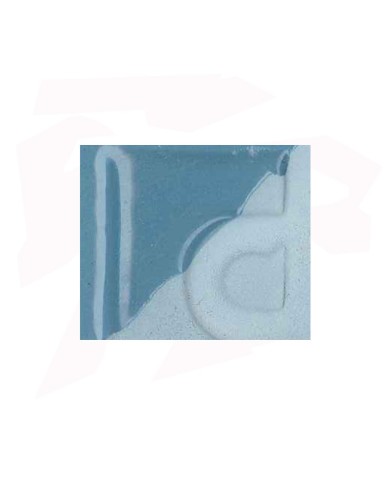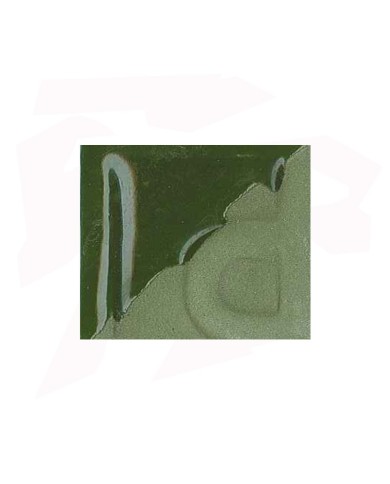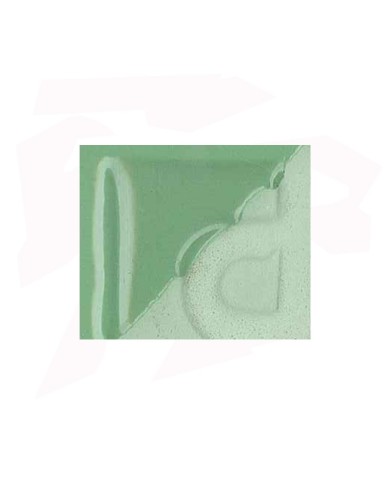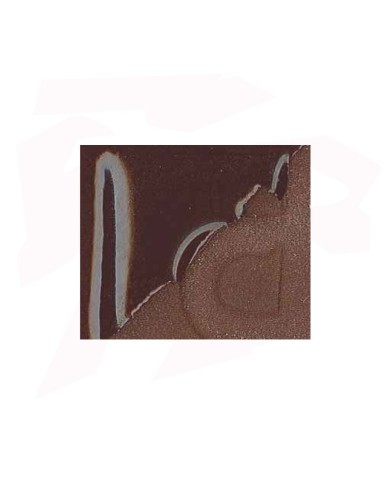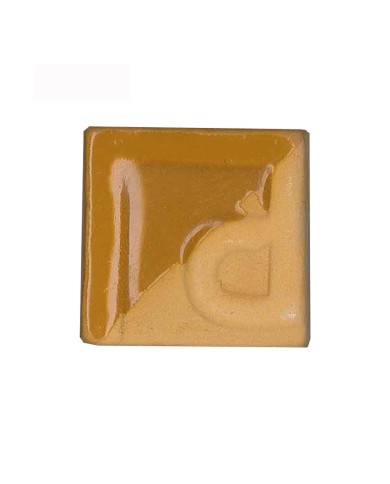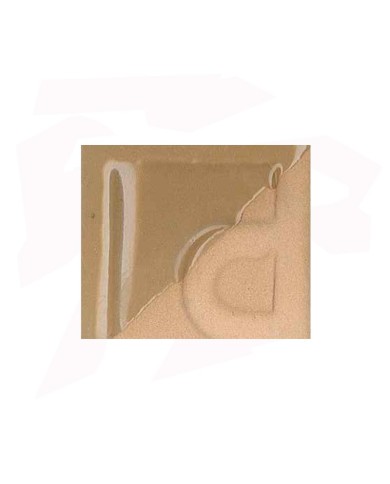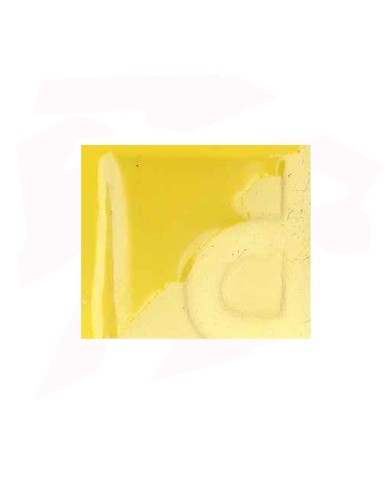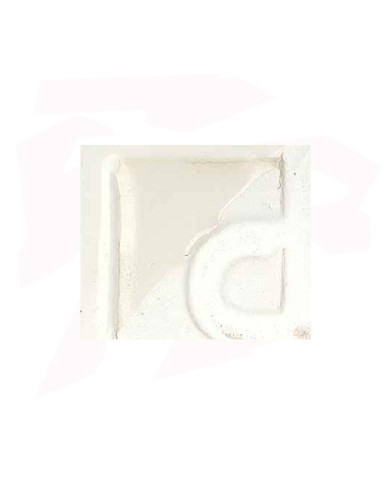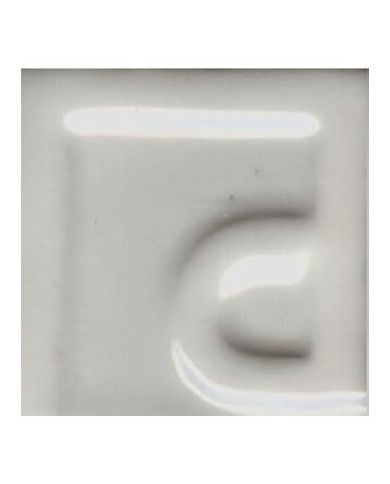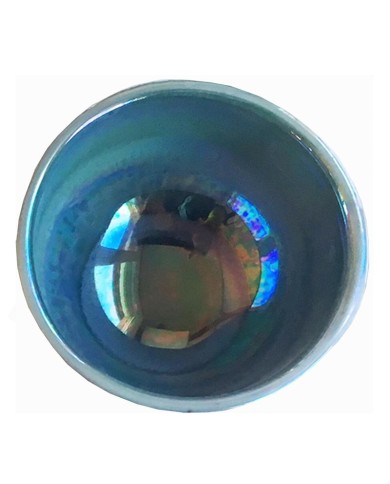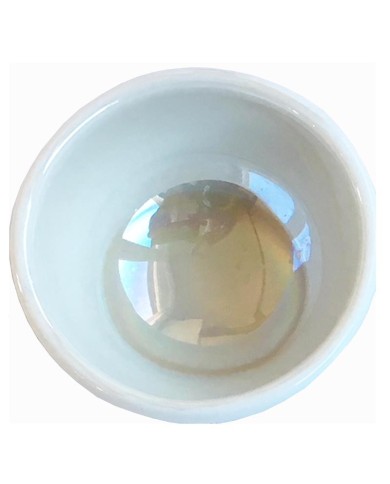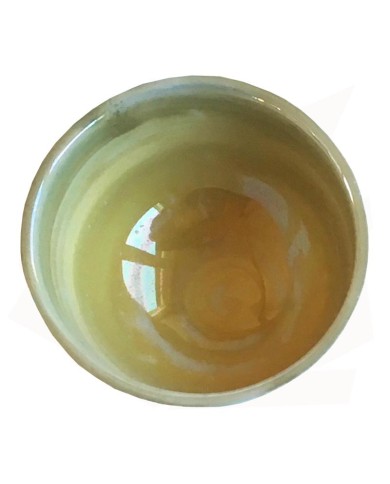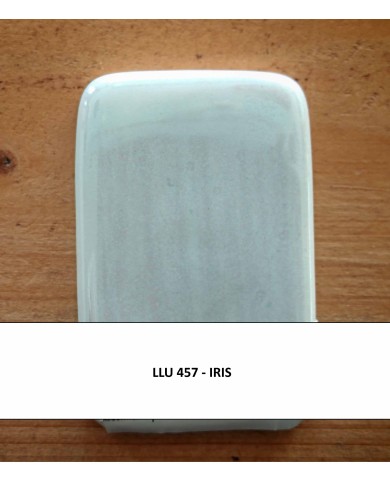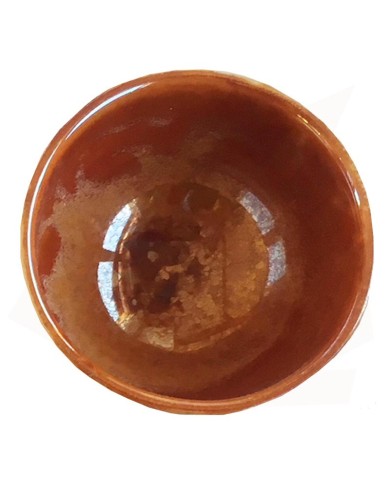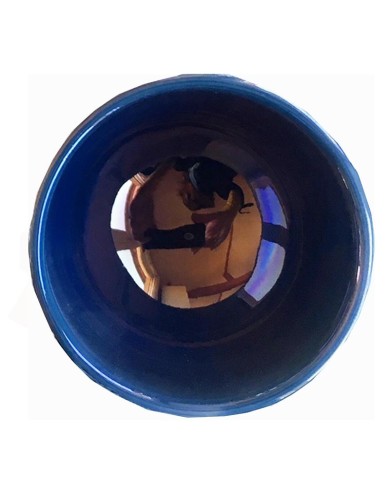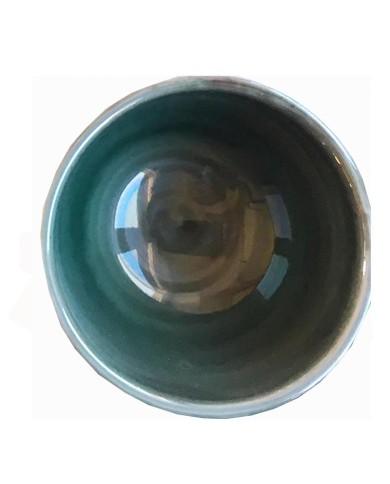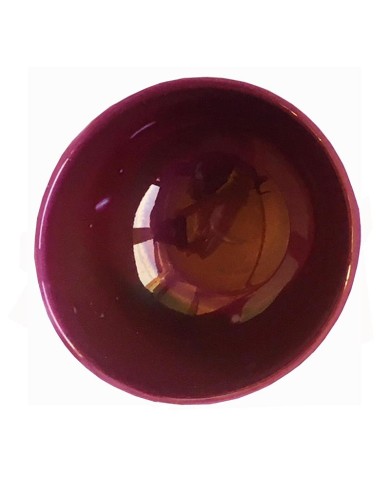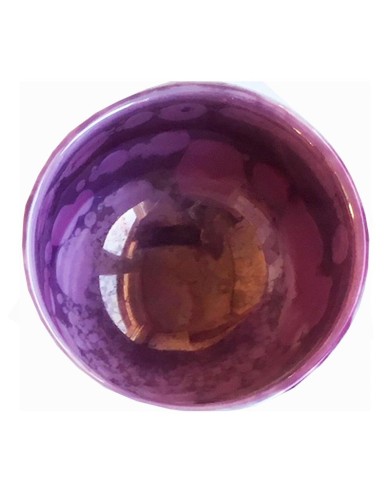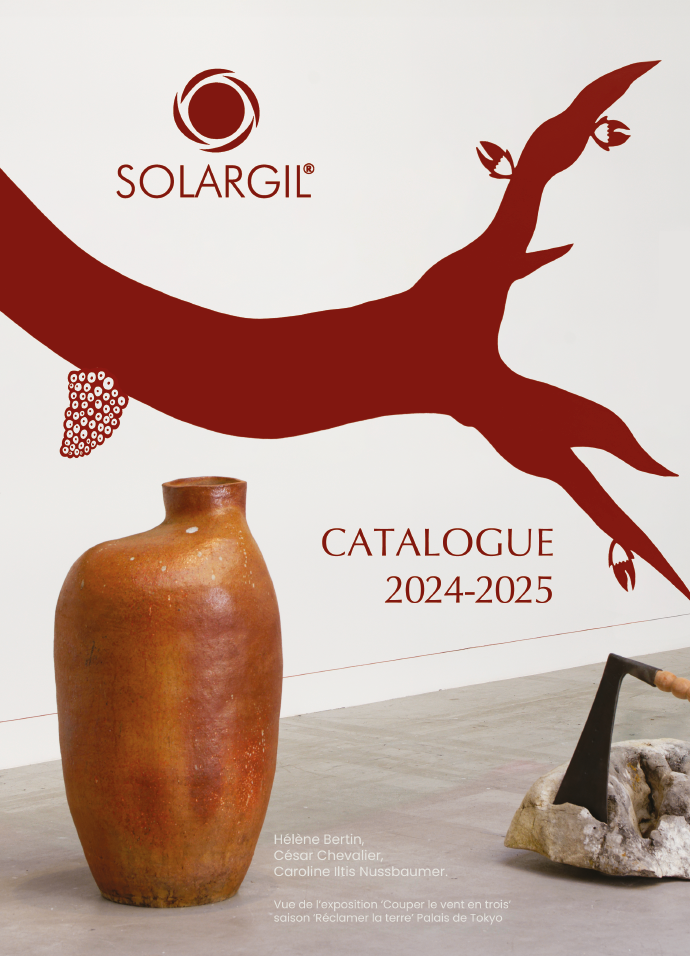Turquoise blue - CS 200
This collection of colors necessary for the "Cuerda Seca" technique includes all the colors to develop a complete palette.
Colors can mix well, except Red CS-210 and Orange CS-211, which must be pure.
To obtain "Pastel" colors, it is necessary to add an opaque white enamel which decreases the intensity of the color and makes it softer.
Transparent crackle enamel - CQ 03 (FR7)
Ceramic compound.
TRANSPARENT CRACKED
TRANSPARENT ENAMEL GLOSSY very alkaline and fondant, suitable for raku techniques or metallic reflections.
Specially recommended as ceramic covered.
With the addition of metallic oxides, characteristic colours of alkaline enamels are obtained, as in the case of the CuO for turquoise blue.
The recommended firing temperature ranges from 800-950°C.
Alkaline crackle transparent enamel - CQ 01 (FR6)
Composed of Fritte.
Cracked and shiny transparent email.
Its application is recommended on white or engobées pasta to appreciate the aged effect of cracking.
Allows decoration under enamel with burnt dye oxides.
Once the piece is cooked, it is recommended to use Judean Bitumen to bring out the cracked effect.
Other enamels can be used as aditives to increase the dilation coefficient.
The firing temperature varies between 940-980ºC.
Black CC11
Engobes range. Possibility to mix them together. Usable on raw pieces or bisquewares, for soaking or decoration.
Temperature of firing : 980-1000°C
Coefficient of expansion: 86
Free of lead
Crimson / CARMINE CC10
Engobes range. Possibility to mix them together. Usable on raw pieces or bisquewares, for soaking or decoration.
Temperature of firing : 940-1020°C
Free of lead
Sevres blue CC09
Engobes range. Possibility to mix them together. Usable on raw pieces or bisquewares, for soaking or decoration.
Temperature of firing : 940-1000°C
Free of lead
Sky blue CC08
Engobes range. Possibility to mix them together. Usable on raw pieces or bisquewares, for soaking or decoration.
Temperature of firing : 980-1000°C
Free of lead
Deep green CC07
Engobes range. Possibility to mix them together. Usable on raw pieces or bisquewares, for soaking or decoration.
Temperature of firing : 980-1000°C
Coefficient of expansion: 86
Free of lead
Light green CC06
Engobes range. Possibility to mix them together. Usable on raw pieces or bisquewares, for soaking or decoration.
Temperature of firing : 980-1000°C
Free of lead
Brown CC05
Engobes range. Possibility to mix them together. Usable on raw pieces or bisquewares, for soaking or decoration.
Temperature of firing : 940-1000°C
Free of lead
Orange CC04
Engobes range. Possibility to mix them together. Usable on raw pieces or bisquewares, for soaking or decoration.
Temperature of firing : 980-1000°C
Free of lead
Toffee CC03
Engobes range. Possibility to mix them together. Usable on raw pieces or bisquewares, for soaking or decoration.
Temperature of firing : 980-1000°C
Free of lead
Yellow CC02
Engobes range. Possibility to mix them together. Usable on raw pieces or bisquewares, for soaking or decoration.
Temperature of firing : 980-1000°C
Coefficient of expansion: 86
Free of lead
COLORED WHITE ENGOBE CC01
Engobes range.
Possibility to mix them together.
Usable on raw pieces or bisquewares, for soaking or decoration.
Temperature of firing : 940-1000°C
Free of lead
Transparent glaze - C551
Composed of Frit.
Transparent for general use, both for red earthenware and for white tiles and majolica.
Develops very well the whole range of colors.
The firing temperature varies between 980-1050ºC.
Lustre light blue
Firing temperature : 750-820°C
Ref : BLLU700
BEIGE PEARL 663/B LUSTRE 3RD FIRING BLLU663/B
Lustre beige pearl
Firing temperature : 750-820°C
Ref : BLLU663/B
YELLOW 482 LUSTRE 3RD FIRING BLLU482
Luster yellow
Firing temperature : 750-820°C
3RD FIRE MOTHER OF PEARL LUSTER BLLU457
Ref : BLLU457
ORANGE 210 LUSTRE 3RD FIRING BLLU210
Lustre orange
Firing temperature : 750-820°C
Ref : BLLU210
COBALT BLUE 702 LUSTRE 3RD FIRING BLLG702
Lustre cobalt blue
Firing temperature : 750-820°C
DARK GREEN 593LUSTRE 3RD FIRING BLLG593
Lustre dark green
Firing temperature : 750-820°C
RED 430 LUSTRE 3RD FIRING BLLG430
Luster red
Firing temperature: 750-820°C
PINK 1333 LUSTRE 3RD FIRING BLLG1333
Luster pink
Firing temperature : 750-820°C

